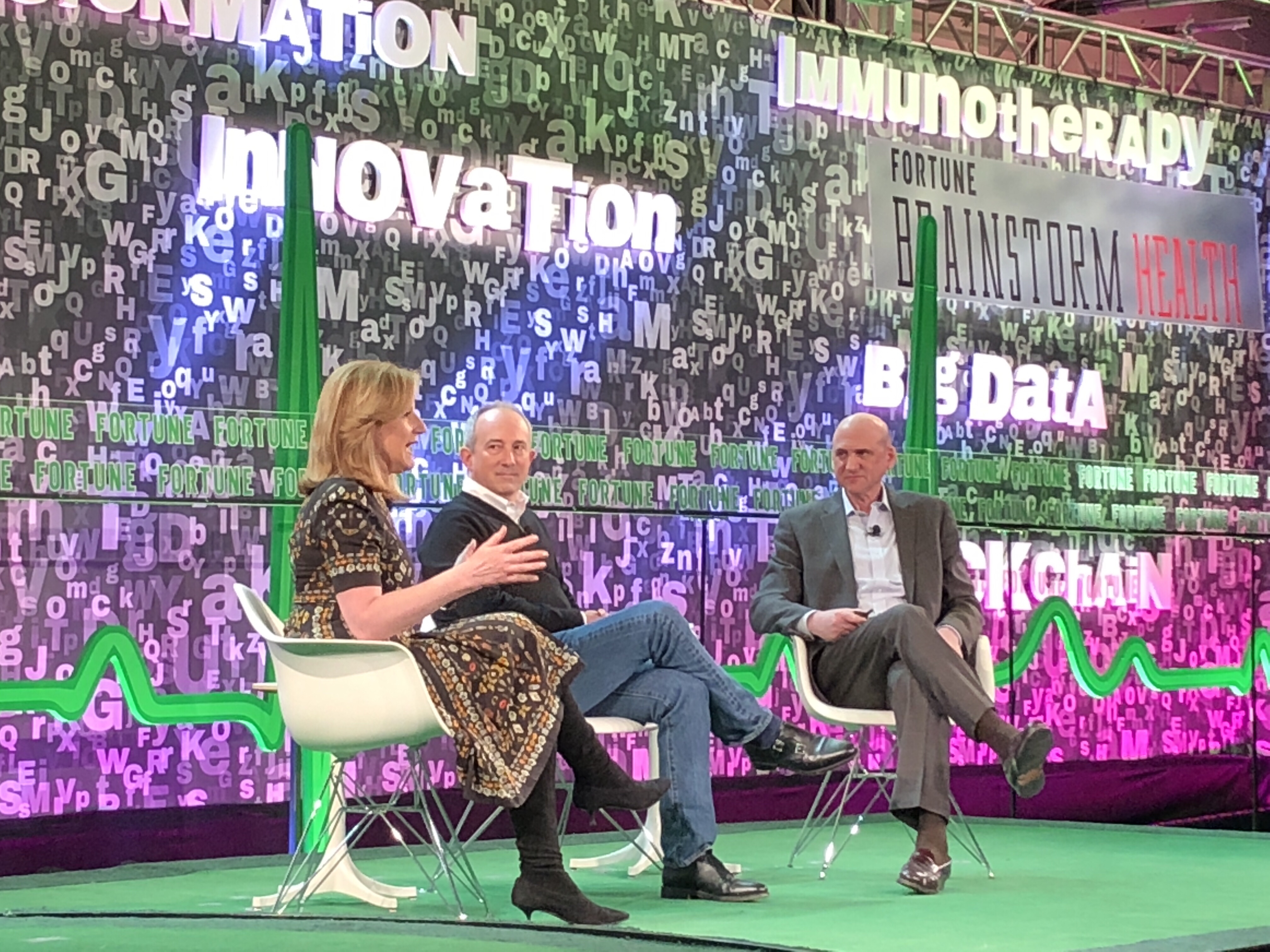I’ve just returned from the 3rd Fortune Brainstorm Health Conference in California, where unsurprisingly much of the agenda focused on the current and potential impact of data and AI on the healthcare industry. It’s suggested that over 30% of the massive amount of data now being generated each year is health related, and the challenge lies with identifying where the greatest potential for impact lies.

It’s also important to link impact with opportunity to implement. In healthcare numerous barriers to change of any kind exist, let alone radical transformation activities. A number of conversations referenced the challenges of trying to move behaviors and activities which are currently fully human straight to fully autonomous, and how important it is to identify where the step change opportunities exist.
In line with that thinking, there’s a real shift underway to AI being thought of as augmented, rather than artificial, intelligence. Augmented intelligence sees machines equipped to assist humans by taking over process tasks where human involvement adds no additional value – helping humans do their jobs better. Artificial intelligence involves teaching machines to think like humans, replacing the need for human involvement. It’s critical that we find ways to ensure that clinicians are able to devote their time to the components of healthcare that only they can deliver. Without progress in this area the global clinician gap will continue to widen, as the increasing disease burden outstrips the number of qualified practitioners. This is something we’re acutely aware of at Icon Group, with a number of our technology initiatives driven to counter the shortage of oncologists in many Asian countries.
One of the big challenges in implementing big data and AI solutions is the quality and completeness of the data available. Decisions made using flawed or partial data sets increase risk, so part of identifying the opportunities must include an ability to evaluate what risks are potentially created by missing pieces of information. The general belief was that this is likely to see AI focus more on automation of process and basic care management in the near future, with solutions which actually diagnose requiring more progress in data collation and quality.
Access to longitudinal data sets, where every instance of a patient’s medical interaction over an extended period of time is captured, is critical as this not only increases the likelihood of a more complete record, but also allows insight over how the persons health has changed over that window. Being a US conference, there was a lot of dialogue on how the siloed nature of the giant EMRs made this a challenge, with a change in care provider commonly resulting in a loss or reduction in the accessibility of their health history. I was fascinated by the opportunity that the recent Israeli govt announcement (referenced here) potentially creates in contrast, where a full and complete record of every health service accessed in the last 17 years exists as a data set. This unique data set may well provide the potential to fast track the development of some exciting solutions.
It’s definitely a space we’re watching with great interest, and we expect AI (in both its augmented and artificial contexts) to play an increasingly important role in our goal of delivering the best care possible to as many patients as possible, as close to home as possible.
These thoughts have been gathered from a range of statements and conversations both on and off the stage at the conference, and Fortune have captured many of those sessions in detail in a series of great articles here that are well worth the time to read.
